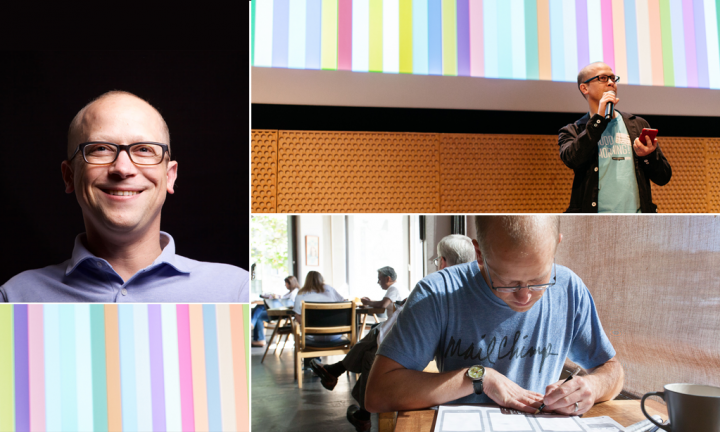David Conrad is a founding partner and Design Director at Design Commission, a user experience design studio in Seattle WA. His responsibility is to ensure strategic design thinking is applied throughout the business and facilitate successful projects. He’s passionate about connecting business, design and technology with a natural ability to identify potential and solve problems. In his free time, David organizes CreativeMornings in Seattle and teaches mobile experience design at the University of Washington.
Q: Design Change is…
A: A thoughtful approach to understanding intention and reflecting that intention in a solution.
Q: What’s the big opportunity for design in Seattle?
A: The intersection of digital and physical experiences is a big opportunity for design in Seattle. We produce a lot of physical experiences around architecture, or, say, transportation. All these things will have digital touchpoints. Seattle is in a good place to be leader in that space.
Q: If you could change one thing about your design profession, what would it be?
A: As interaction designers, we need to do a better job of making the digital world enjoyable to be in. This requires the thoughtful design of systems without compromising their humanity. And we have to advocate for the value of that service.
Q: When did you first understand the concept of “design” – that “design” exists?
A: In 1995 my mother, who ran a community arts center, dragged me along with her to the IDCA (International Design Conference in Aspen). The whole time leading up to the conference I kept asking, “yes, but design of WHAT?” – I wanted specifics about what this conference was going to be about. After hearing a few talks (I believe Larry Keeley was my first exposure to “design thinking”) it dawned on me that design could be a verb as well as a noun. After the first day I was all in.
Q: What advice would you give designers new to the profession?
A:
1) Learn to sell your ideas – if you can’t sell it you won’t last long.
2) Be a good communicator and collaborator – nobody wants to work with an arrogant block-head – no matter how good you are.
3) And, finally, stay busy. Design involves muscle memory that you lose when stop working. If you are constantly working on something, you’ll be in much better shape when that dream project comes across your desk.
Learn more about David’s work:
Design Commission
CreativeMornings Seattle
Email – david@designcommission.com
Twitter – @davidconrad





